A lot is made of sports at summer camp, but most summer camps also offer many programs in the arts. Dance is one such program that is  becoming increasingly popular among both boys and girls. Like the many sports available to try, summer camp dance programs give campers the opportunity to experiment with several different dance styles. Aside from the traditional jazz, instruction is often available in contemporary, modern, hip hop, and ballet. In addition to offering instruction in multiple styles of dance, many camps also form competitive dance teams that, like sports teams, travel to other camps to compete in dance competitions throughout the summer. Even if campers aren’t quite ready to audition for So You Think You Can Dance, being a member of a camp dance team is still well within reach. Typically, because summer camp staff work hard to make their camps a safe environment for children to feel encouraged to step out of their comfort zones and try new things, more emphasis is placed on interest than ability. Many camps create teams for beginners as well as the more experienced. Summer camp dance teams are also the reason many campers find their camp dance programs a great way to pursue a non sports related interest yet still be competitive.
becoming increasingly popular among both boys and girls. Like the many sports available to try, summer camp dance programs give campers the opportunity to experiment with several different dance styles. Aside from the traditional jazz, instruction is often available in contemporary, modern, hip hop, and ballet. In addition to offering instruction in multiple styles of dance, many camps also form competitive dance teams that, like sports teams, travel to other camps to compete in dance competitions throughout the summer. Even if campers aren’t quite ready to audition for So You Think You Can Dance, being a member of a camp dance team is still well within reach. Typically, because summer camp staff work hard to make their camps a safe environment for children to feel encouraged to step out of their comfort zones and try new things, more emphasis is placed on interest than ability. Many camps create teams for beginners as well as the more experienced. Summer camp dance teams are also the reason many campers find their camp dance programs a great way to pursue a non sports related interest yet still be competitive.
Another reason that summer camp dance programs have become so popular is that they provide an outlet to still be physically active in a creative environment. Summer camp is about letting go and not being afraid to act a little bit silly. Dance provides the same disciplinary and physical training as traditional sports yet also gives campers the opportunity to express themselves and sometimes even be a tad goofy through artistic choreography. Dance instruction is often provided by trained dance instructors or college students who compete on their university dance team or are pursuing a career in the field of dance. The availability of instruction in popular forms of dance such as hip hop has also driven the popularity of dance.
creative environment. Summer camp is about letting go and not being afraid to act a little bit silly. Dance provides the same disciplinary and physical training as traditional sports yet also gives campers the opportunity to express themselves and sometimes even be a tad goofy through artistic choreography. Dance instruction is often provided by trained dance instructors or college students who compete on their university dance team or are pursuing a career in the field of dance. The availability of instruction in popular forms of dance such as hip hop has also driven the popularity of dance.
Dance is also versatile. Even though not every camper has a desire to be competitive in  dance, campers enjoy learning new moves in dance class and then using them to choreograph bunk or cabin dance numbers for camp shows or talent contests. They also like showing off their moves on the dance floor during camp dances. Having the opportunity to practice new dance moves in an open, accepting environment such as summer camp gives campers the confidence to continue learning, practicing, and trying what they’ve learned at home.
dance, campers enjoy learning new moves in dance class and then using them to choreograph bunk or cabin dance numbers for camp shows or talent contests. They also like showing off their moves on the dance floor during camp dances. Having the opportunity to practice new dance moves in an open, accepting environment such as summer camp gives campers the confidence to continue learning, practicing, and trying what they’ve learned at home.






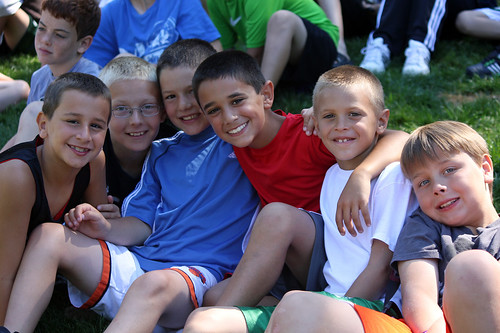
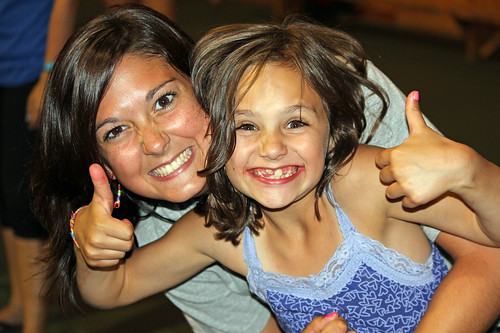
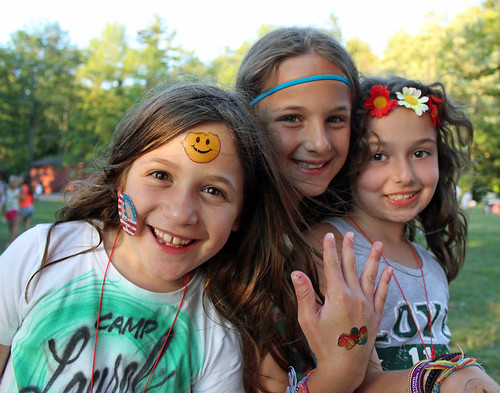
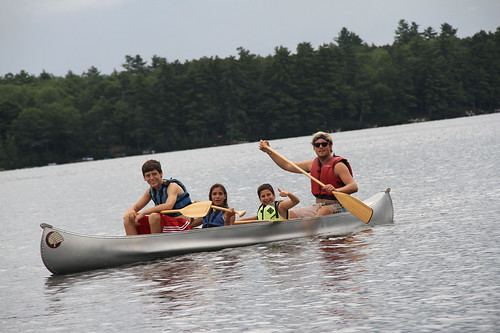
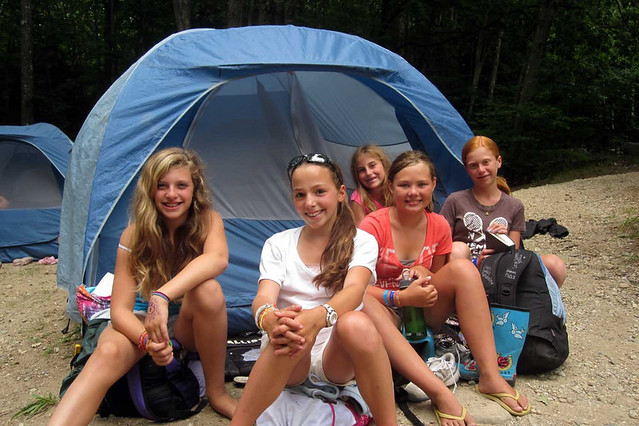

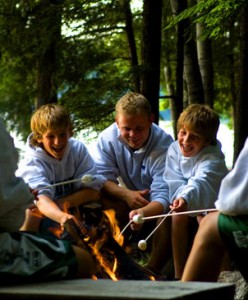
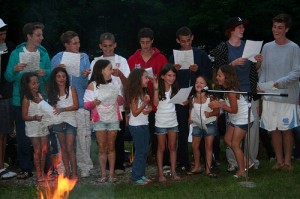
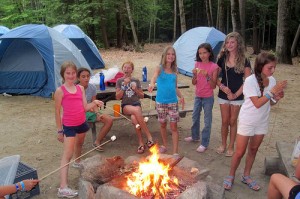
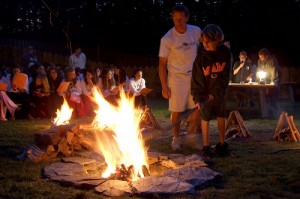
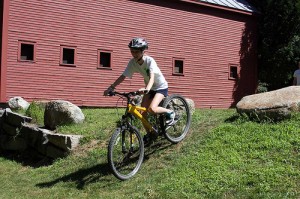
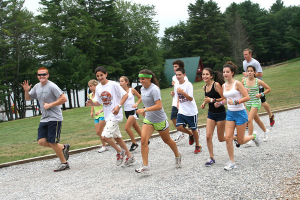
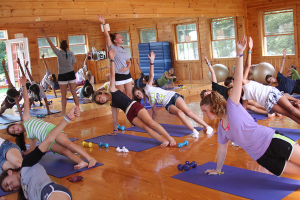
 When I think about “camp songs,” I immediately think about singing around campfires, but each year at camp also has a distinct popular music soundtrack. Recently, campers weighed in on Twitter about the tunes that remind them of past summers and that got me thinking about what the United States and camp was like in the 1960s and 1970s.
When I think about “camp songs,” I immediately think about singing around campfires, but each year at camp also has a distinct popular music soundtrack. Recently, campers weighed in on Twitter about the tunes that remind them of past summers and that got me thinking about what the United States and camp was like in the 1960s and 1970s.
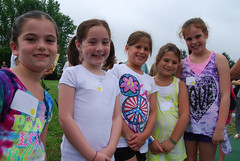
 While no actual human being develops in the precise
While no actual human being develops in the precise  As children mature, they continue to develop and require more experiences where they can make independent choices without parents. If parents don’t allow children to make decisions and do things on their own, they won’t develop confidence or realize that they are not just extensions of their caregivers. It’s a tricky line that parents walk! Sometimes giving child
As children mature, they continue to develop and require more experiences where they can make independent choices without parents. If parents don’t allow children to make decisions and do things on their own, they won’t develop confidence or realize that they are not just extensions of their caregivers. It’s a tricky line that parents walk! Sometimes giving child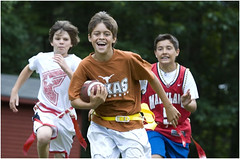
 Of course, the
Of course, the 
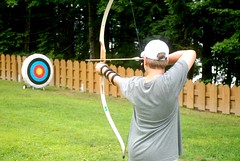 Many families are surprised at the sheer amount of first-time experiences their kids have at summer camp. When Justin, a 12 year old who attended camp this year, was asked to list things he did for the first time at camp, he had quite the list. “I learned how to play guitar, archery, and golf,” he said. During our conversation, it also came out that he also learned new baseball skills and got to play tennis. He also experienced the camp evening programs for the first time, which he raved about as being “fun and creative.” Justin’s going to be talking to a lot of people about camp when he goes back to school. And what is he going to tell them? “I made a lot of new friends and tried a lot of new things. I had the best time!”
Many families are surprised at the sheer amount of first-time experiences their kids have at summer camp. When Justin, a 12 year old who attended camp this year, was asked to list things he did for the first time at camp, he had quite the list. “I learned how to play guitar, archery, and golf,” he said. During our conversation, it also came out that he also learned new baseball skills and got to play tennis. He also experienced the camp evening programs for the first time, which he raved about as being “fun and creative.” Justin’s going to be talking to a lot of people about camp when he goes back to school. And what is he going to tell them? “I made a lot of new friends and tried a lot of new things. I had the best time!”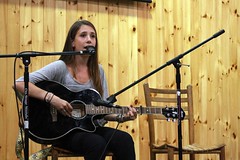 With today’s technology, however, the summer camp community can stay together all year, even when they return to the home cities, states and countries. We have an active Facebook community where current campers, families and alumni can connect, share stories and keep up to date with the staff and the current session. Much of the chatter is about how much everyone misses camp and wishes they were back on the lake, riding the horses, singing in the dining hall, etc. For those who’ve connected to Camp Laurel through
With today’s technology, however, the summer camp community can stay together all year, even when they return to the home cities, states and countries. We have an active Facebook community where current campers, families and alumni can connect, share stories and keep up to date with the staff and the current session. Much of the chatter is about how much everyone misses camp and wishes they were back on the lake, riding the horses, singing in the dining hall, etc. For those who’ve connected to Camp Laurel through 